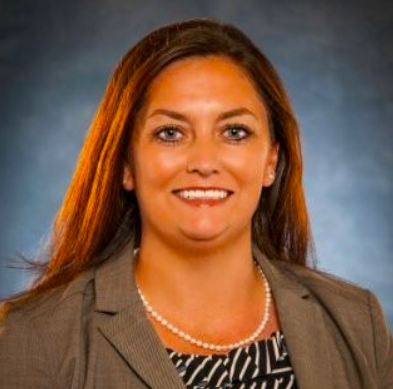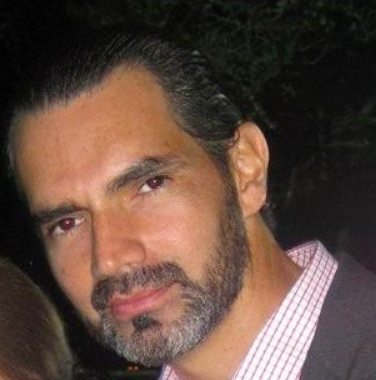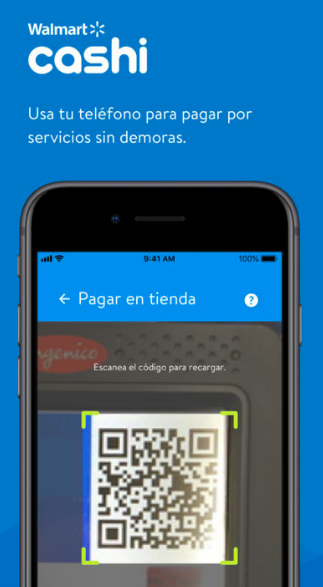What: We spoke to Jenifer Bice, Senior Director, International Communications and Pedro Mucciolo, Director, International Corporate Affairs at Walmart, in order to find out more about Walmart's initiatives to compete in the E-commerce space at a global level, but more specifically in Latin America.
Why it matters: As E-commerce keeps gaining ground, stores with a long tradition of brick-and-mortar retail must come up with ways of staying relevant. For Walmart, the key is making consumers' lives easier and as convenient as possible.
How can an international giant retailer that “has it all” at a global level hit closer to home amongst its local consumers?
The greatest innovations often come from the simplest of questions. Our fast-paced lifestyles have left us with a fundamental issue: we often dont have as much time in our hands as we wish we had, and with the time we have, we still have to manage our lives and keep our fridges stocked, our homes fresh and our bodies clean. How many times havent we wished the shopping could do itself? Or had to make time to undertake the time-consuming journey of commuting, roaming, choosing, paying and repeat again next week? We spoke to Jenifer Bice, Senior Director, International Communications and Pedro Mucciolo, Director, International Corporate Affairs at Walmart, in order to find out more about Walmart's initiatives to compete in the E-commerce space at a global level, but more specifically in Latin America.
Bring Technology Literally Closer to Home

Jenifer Bice
When we asked Jenifer Bice what she thinks about the future and how Walmart will prepare for it, she comments on the importance of an omnichannel strategy: “What excites me about whats to come is how were adjusting our approach to not only focus on our traditional retail stores but to make sure were creating an omnichannel ecosystem to serve the customers.” With about 3,200 retail locations across Latin America, Jenifer believes that with that kind of physical footprint, “We are uniquely positioned to be able to service customers in a way that no one else can, so you can go online and order your groceries and drive up to a Walmart store, Bodega, or Sams Club and pick them up without having to get out of your car.”
As she explains, the key concept today is "convenience". As time seems to move faster every day, consumers are looking for companies that make it all easier. “In the US and also in Latin America, customers are wanting convenience, access, trust in the companies theyre engaging with, and to know that theyre not only getting great prices but also quality products,” asserted Jenifer. “We know our customers, were innovating on their behalf, and producing solutions that we know will make their lives easier and more convenient so that they can spend less time walking around the store and more time being able to focus on their families or just having the convenience to shop when they want and how they want. “

Pedro Mucciolo
But the last mile (delivering from the store to your door) model isnt new for the Walmart group, its been going on for a long time according to Pedro Mucciolo, who mentioned that “Superama, the supermarket banner for Walmart Mexico, had a service called 'the one hour express delivery service', thats been going up for almost 20 years and it started via phone and fax. With technology and innovation, Superama has been able to offer the service via mobile apps, of course, and your laptop."
Then, the idea has been there a long time, but modern times call for innovative measures. Now its up to Walmart to support a great idea with the appropriate technology. A key aspect of the equation is expedited delivery, which is way the company has decided to partner up with players in the delivery industry. For example, “We do have a partnership in Argentina with a company called Mercadoni and they deliver in less than two hours within the city of Buenos Aires," shared Jenifer.
 And all the efforts have paid off. The results in Latin America speak for themselves: “In Chile, online sales have doubled in the past year, so that tells us something about customers wanting convenience and being able to shop wherever they are”, said Jenifer. And customers keep coming back for more, as data shows a customer who tries the service is very likely to use it again.
And all the efforts have paid off. The results in Latin America speak for themselves: “In Chile, online sales have doubled in the past year, so that tells us something about customers wanting convenience and being able to shop wherever they are”, said Jenifer. And customers keep coming back for more, as data shows a customer who tries the service is very likely to use it again.
But perhaps the strongest element in people's idea of convenience today is being able to download an app that can solve an issue in a matter of minutes, Jenifer told us that “In Mexico, we developed from the ground up and have launched an application called Cashi, and it was created to serve our customers in mexico who are unbanked, so they have an option to be able to go in our stores, use cash, and apply that cash to their app. It gives them a digital wallet so that they can then purchase products in our stores, they can pay utility bills, or they can order Netflix all though their app so that they dont have to rely on a bank or carrying cash.”
Buy Local, Think Global: a Global Company Catering to Local Needs
“Because Walmart has operations around the world, weve been able to get different ideas from different places and roll them out either in a chain-wide app like Cashi or transfer that to other markets,” said Jenifer. “From an international strategy perspective, were really trying to make sure that our businesses in the local markets are solving the local needs of their customers. So you have all the beauty of a local business with all of the benefits of being part of a worldwide company.”
We're really trying to make sure that our businesses in the local markets are solving the local needs of their customers.
The basic ingredient to keep in mind: represent your audiences. Consumers want to see themselves and their culture represented in what they buy and whom they're buying from, so brands need to take that into account when reaching for audiences in different markets. “From a marketing perspective, the insights for each country are quite different," asserted Jenifer. "For example, on Big Billion Day, which is the biggest shopping week of the year in India, the marketing is focused on making sure that they have key Indian celebrities who are helping tell their story and encouraging people to shop.”
When asked about how they do this to target US Hispanics, for example, Pedro Mucciolo explained that Walmart does their best to represent their Hispanic audiences in the store: “For the holiday season, we know that food is a very important part of Latin culture and US Hispanic culture, so the multicultural marketing team teamed up with our team to offer US Hispanic customers a series of shows that would have just Hispanic staff cooking recipes around the season and catering to the Hispanic customer, likely to purchase those products in order to make those delicious dishes from Mexico or Colombia or Venezuela. It was very successful, so every year we have a new campaign around holidays.”
Give Back to the Community
 In the end, it doesn't matter how many initiatives you have in terms of growing your business if helping the community isn't one of them. “Ive been in Walmart for 10 years but what continues to amaze me every day is how we focus on being this society and supporting the communities where we live and work," shared Jenifer. "Whether thats through the womens economic empowerment initiative, giving grants to local farmers in India so they can make a life for themselves in their communities, focus on more sustainable practices in Latin America, recycle our bags or any other number of things. The more you dig and the more you learn, the more youre proud to work here and to be a part of the company, so coming back to work with international, I feel Im just starting to peel the onion again on the more important social things that were doing that seem to fly under the radar sometimes.”
In the end, it doesn't matter how many initiatives you have in terms of growing your business if helping the community isn't one of them. “Ive been in Walmart for 10 years but what continues to amaze me every day is how we focus on being this society and supporting the communities where we live and work," shared Jenifer. "Whether thats through the womens economic empowerment initiative, giving grants to local farmers in India so they can make a life for themselves in their communities, focus on more sustainable practices in Latin America, recycle our bags or any other number of things. The more you dig and the more you learn, the more youre proud to work here and to be a part of the company, so coming back to work with international, I feel Im just starting to peel the onion again on the more important social things that were doing that seem to fly under the radar sometimes.”
“There are a large number of suppliers, for example in Central America, that start off really really small, and thanks to a variety of programs powered by Walmart, they become larger suppliers, so families get better lives, and we create more jobs and more opportunities for the communities as a whole," added Pedro.
Janet Grynberg @grynberg_janet
Janet has worked as editor and translator since 2013. After graduating with honors when receiving her Bachelor's Degree in English literature, she began working as a book reviewer for Expansión, the leading business magazine in Mexico. She has also worked as editor of young adult literature for publishing houses like Planeta and Penguin, and she's the author of a book of short stories. She's in the process of getting her MA in English at McGill University. Her interests include arts, good food, and her 8 pets.











